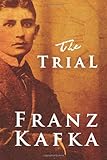One year ago today, Aaron Swartz took his own life. One of his most impressive qualities was his appetite for reading books. For instance, he read 70 books in 2011 and kindly posted his thoughts on all of them on his blog. In memory of Aaron and in that same spirit of sharing with the community, here are the best books I read in 2013.
- I am Malala by Malala Yousafzai — The riveting, first-person story of a teenager from the Swat Valley who stood up to the Taliban. It will bring you to tears and inspire you to pursue great things with your life.
- Zealot by Reza Aslan — a compelling narrative of the Life and Times of the historical Jesus, Aslan answers such interesting questions such as: why was Jesus said to have been born in Bethlehem when he was from Nazareth? Why did he overturn the money tables? What’s the meaning of the “Render unto Ceaser” quote? Why is Paul, who never met Jesus, such an important figure in early Christianity? And, perhaps most crucially, what happened to Jesus’s brother, James the Just?
- Far From The Tree by Andrew Solomon — an incredibly in-depth books about having children with horizontal identities different than yours (e.g., deaf, gay). A must read for perspective parents.
- Mean and Lowly Things by Kate Jackson — How would handle 30 days in the Congolese jungle trying to find new species of snakes? Not as well as Kate Jackson who, amazingly, outlasts the locals. An educational and inspiring tale.
- Mountains Beyond Mountains by Tracy Kidder — the story of how Paul Farmer is changing the world through medicine. I actually didn’t like Kidder’s writing style and I hope to pick up a book by Farmer–giving a first-person account–sometime in 2014.
- Thinking Fast and Slow by Daniel Kahneman — a seminal social psychology work that I should have read a long time ago.
- Writing on the Wall by Tom Standage — how social media has developed (and shrunk at times) over the course of civilization. Euro-centric, but interesting. Intersects with the ideas Zealot when talking about Paul’s letters (e.g., his letter to the Corinthians).
- The Gamble by Sides and Vavreck — political science applied to the 2012 election. One book such as this needs to be published each presidential cycle to push back against the unsupported-by-data media narratives. Political scientists don’t need to read this book; journalists do.
- The Signal and the Noise by Nate Silver — how statistics influences a variety of fields, from sports to the weather. I love the explanation of Bayesian statistics.
- The Casual Vacancy by JK Rowling — in which Rowling proves that she can write about more than wizards. A wonderful book for people who like politics, as the story revolves around a local town council.
- Harry Potter and the Methods of Rationality by Eliezer Yudkowsky — I believe I started reading this in 2012, but the story isn’t finished yet (it will wrap up this year), and I have to include this fantastic story on this list because I believe I learned about it through Aaron Swartz telling Taren about it, who then told me to check it out. And I’m glad I did. Furthermore, Yudkowsky recommends Worm, which I quickly became addicted to.
May Aaron’s life inspire others to both read and act.








